Teething Tips
Teething can be a tough time for both babies and parents. You may notice your baby becoming fussier or drooling more as their first teeth start to come in, usually between 6 and 12 months. To soothe sore gums, gently rub them with a clean finger or offer a cold teething ring. As soon as the first tooth appears, it’s time to start brushing with a soft, infant toothbrush and a grain-of-rice sized smear of training (fluoride-free) toothpaste.
Bottle-Feeding, Nighttime Nursing, and Tooth Decay
Did you know that prolonged bottle-feeding can lead to cavities in baby teeth? To avoid “bottle decay,” never let your baby fall asleep with a bottle containing milk, formula, or juice. If your baby needs a bedtime bottle, try to establish early good habits and fill it with water instead. If they nurse late at night, wipe the teeth gently after feedings with water by gauze or soft brush.
First Dental Visit
The American Academy of Pediatric Dentistry (AAPD) recommends that your baby’s first dental visit should happen by their first birthday, or when their first tooth comes in—whichever comes first. This early visit is mostly informational in nature, allowing us to guide you and answer any questions you may have about your child’s oral health.




